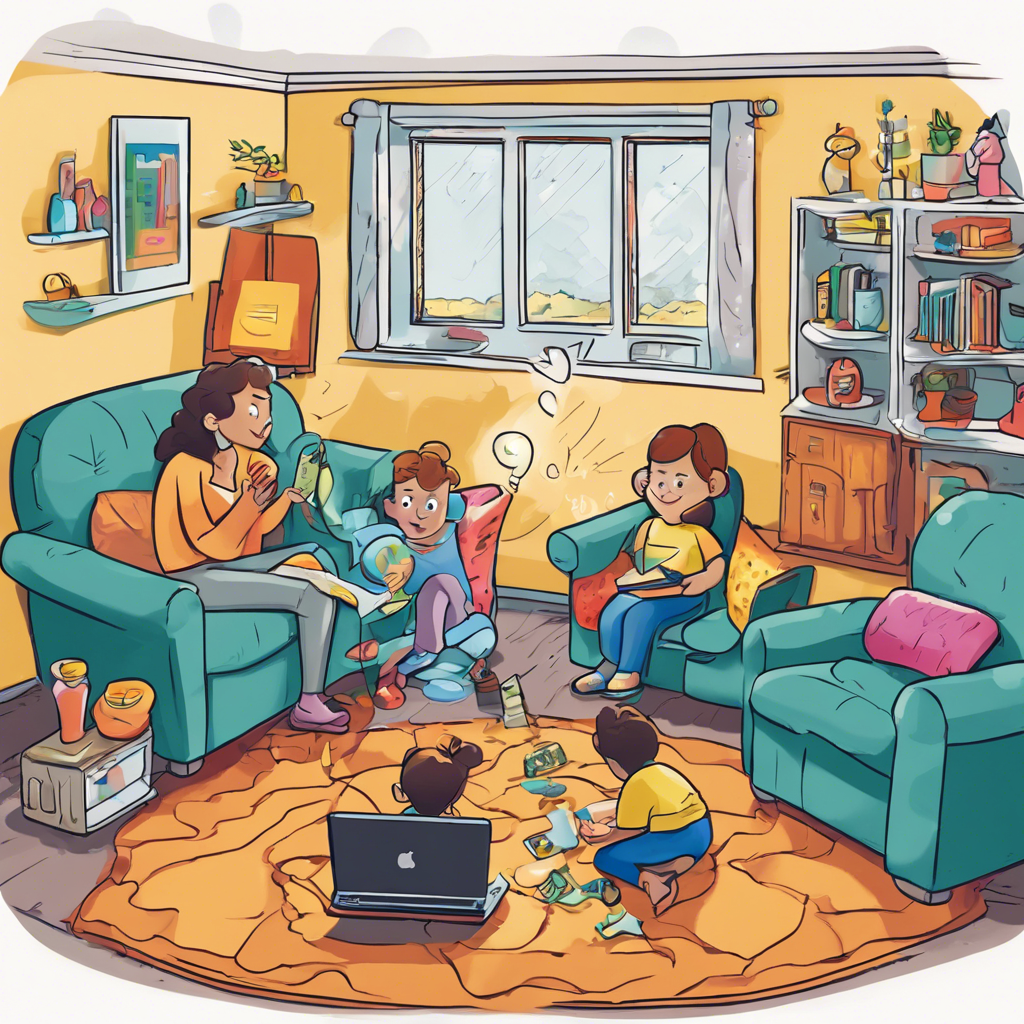In What Ways Do Media Portrayals Of Conspiracy Theories Differ From Their Depiction In Dystopian Literature, And How Does This Impact Public Perception?
Gathering question image...
Introduction
The representation of conspiracy theories in media and their exploration in dystopian literature reveal noteworthy similarities, yet their methods greatly influence how the public understands and interprets these theories. This analysis seeks to clarify these distinctions and highlight their significance on society's comprehension of conspiracy theories.
Media Representations of Conspiracy Theories
Media often depicts conspiracy theories through sensationalism, focusing on entertainment value and shock. Television shows, documentaries, and news segments frequently dramatize these ideas, emphasizing thrill and intrigue, which can detract from the seriousness of the theories. Such representations can distort factual accuracy, leading to a phenomenon often referred to as conspiracy theory entertainment that lacks substantive depth.
- Highlights sensational narratives that simplify intricate issues.
- Promotes audience involvement through entertainment instead of critical evaluation.
- Frequently blurs the lines between reality and fiction, potentially resulting in misinformation about real-world events.
Conspiracy Theories in Dystopian Literature
Conversely, dystopian literature thoroughly investigates the implications of conspiracy theories, often mirroring societal anxieties and critiquing established political and social structures. Classic works like George Orwell's '1984' and Aldous Huxley's 'Brave New World' examine the hazards of authoritarian regimes manipulating truth, stressing the severe consequences arising from unchallenged power. Such narratives emphasize the necessity for skepticism and analytical thinking in readers, promoting a deeper understanding of the consequences tied to conspiracy theories.
- Examines core themes of power, individuality, and the essence of truth.
- Instills caution regarding unchecked authority and the flexibility of reality.
- Encourages readers to critically assess societal norms, authority figures, and the information they're presented with.
Conclusion
In conclusion, while media often sensationalizes conspiracy theories for entertainment purposes, dystopian literature provides insightful critiques that provoke thoughtful consideration of power dynamics and personal freedoms. This disparity in representation plays a crucial role in shaping public perception, resulting in varying degrees of skepticism and engagement with conspiracy theories.
Expert Quote
Dr. Karen M. M. Roy, Sociologist and Author of 'Conspiracy Theories: The Politics of Paranoia'
The way conspiracy theories are depicted in literature and media significantly influences societal views; sensationalized media can trivialize complex concerns, while dystopian narratives urge deeper engagement with the realities of power and consequences of ignorance.
Roy, K. M. M. (2022). 'Conspiracy Theories: The Politics of Paranoia'. Oxford University Press.
Relevant Links
The Psychology of Conspiracy Theories - PMC
https://pmc.ncbi.nlm.nih.gov/articles/PMC5724570/Role of science fiction in conceptualising the reproductive future: a ...
https://mh.bmj.com/content/51/3/306Exploring the Role of News Outlets in the Rise of a Conspiracy ...
https://www.mdpi.com/2673-8112/4/12/132Spark 001 Descriptions
https://ge.ucmerced.edu/sites/g/files/ufvvjh961/f/page/documents/spark_001_descriptions.pdfWould you notice if fake news changed your behavior? An ...
https://www.sciencedirect.com/science/article/pii/S0747563220303800Most popular questions

How Do The Personal Relationships Among Gods Affect Their Decisions In The Iliad?
The intricate relationships among the gods in Homer's epic poem 'The Iliad' play a crucial role in shaping their actions and decisions. These divine interactions create a complex web of fates, where each god's personal alliances and rivalries directly influence the events of the mortal world.

What Strategies Can Parents Use To Educate Their Children About Online Safety Beyond Privacy Settings?
In today's digital landscape, teaching children about online safety is essential for their protection and well-being. While privacy settings play a critical role, parents can implement various strategies to create a thorough understanding of online safety principles among their children.

What Are The Different Types Of Insulation Materials Commonly Used In Buildings, And How Do They Compare In Terms Of Thermal Resistance?
Insulation materials are vital for enhancing energy efficiency in residential and commercial buildings by minimizing heat transfer. Understanding the various insulation types can lead to better choices for thermal resistance and overall comfort.
Most recent questions

In What Ways Do Privacy Features Shaped By User Feedback Alter The Development Strategies Of Social Media Platforms?
Privacy features in social media platforms play a crucial role in enhancing user experience and building trust. As users increasingly express their concerns and preferences about online privacy, these platforms are compelled to adapt their strategies significantly to meet user expectations.

How Do Fermentation Processes Influence The Aroma Of Different Beer Styles?
Fermentation is an essential process in the art of beer brewing, significantly influencing the aroma and flavor profile of various beer styles. By utilizing diverse yeast strains, optimizing fermentation conditions, and selecting specific ingredients, brewers can craft a rich array of aromatic experiences that are characteristic of their beers.

How Do Historical Events Influence The Portrayal Of Cultural Identities In Specific Film Genres?
The representation of cultural identities in film significantly reflects the historical events that shape societies. Filmmakers, drawing from their unique cultural contexts, weave significant historical events into their narratives, showcasing the multifaceted nature of identity across various film genres. This dynamic relationship between film and history not only mirrors cultural narratives but also actively shapes the understanding of these identities.